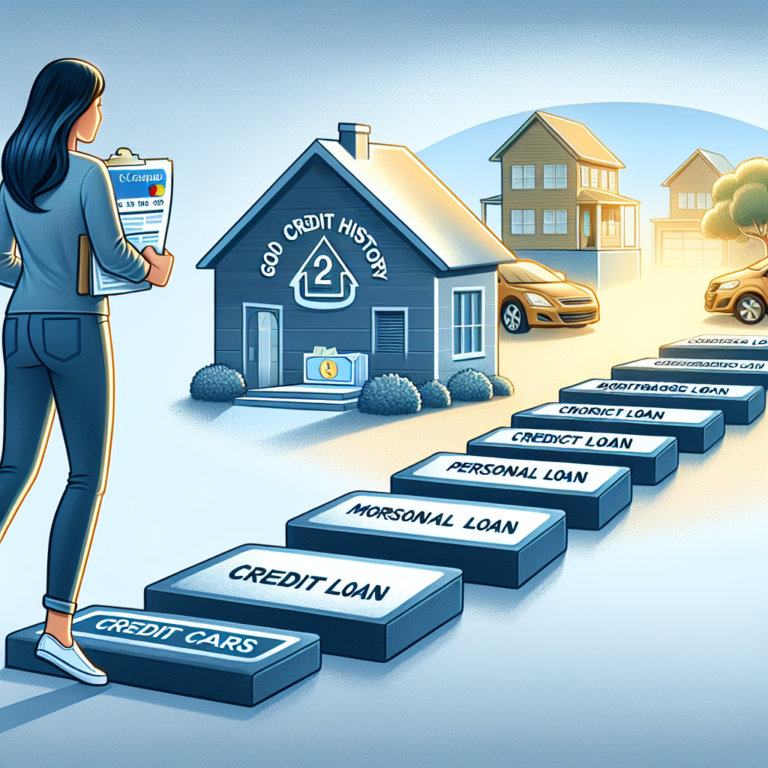Strategies for Building Credit from Scratch
In today’s financial landscape, having a good credit score is essential for a variety of reasons, from securing loans and mortgages to qualifying for better interest rates and even renting an apartment. If you’re starting from scratch and have no credit history, the task of building credit may seem daunting. However, with the right strategies and disciplined financial behavior, establishing a solid credit foundation is entirely achievable. Let’s delve into a comprehensive guide on building credit from scratch.
Why Building Credit Matters
Understanding why building credit is crucial is the first step toward taking actionable measures. Your credit score is a numerical representation of your creditworthiness, which lenders use to determine the risk involved in lending money to you. A good credit score can open doors to financial opportunities, whereas a poor or non-existent credit score can restrict your options and increase the costs of borrowing money.
Start with a Secured Credit Card
A secured credit card is a great way to begin building credit if you have no credit history. Unlike traditional credit cards, a secured credit card requires an upfront security deposit, which typically becomes your credit limit. Because the risk for the issuer is mitigated by your deposit, approval is more likely even for those with no credit history.
Here are some tips for using a secured credit card effectively:
- Choose the right card: Look for a card with low fees and the ability to upgrade to an unsecured card after a period of responsible use.
- Use it sparingly: Make small purchases that you can afford to pay off each month. Utilization rates should ideally be below 30% of your credit limit.
- Pay on time: Timely payments are crucial for building a positive credit history.
- Monitor your account: Regularly review your statements to ensure there are no errors and to keep track of your spending.
Become an Authorized User
An alternative method to build credit is to become an authorized user on someone else’s credit card. This means that their credit card activity will reflect on your credit report, potentially boosting your score if they maintain good credit habits.
It’s essential to choose the right person to partner with—a trusted family member or close friend who has a strong credit history and is financially responsible. When you’re an authorized user, their on-time payments and low credit utilization can enhance your credit profile without requiring you to make a deposit or even handle a credit card directly.
Apply for a Credit-Builder Loan
Credit-builder loans are specifically designed to help individuals with no credit history establish a credit record. These loans are different from traditional loans because the funds are held in a secure account while you make payments. Once you’ve paid off the loan, the funds are released to you.
By making regular, on-time payments, you demonstrate financial responsibility, which can positively impact your credit score. These loans are typically available from community banks, credit unions, and online lenders.
Use Rent and Utility Payments to Build Credit
Your monthly rent and utility payments can be reported to credit bureaus to help build your credit history. Some services, such as RentTrack and Experian Boost, allow you to report these payments yourself. While not all landlords or utility companies participate in these programs, it’s worth exploring this option, especially if you consistently pay on time.
Consider a Store Credit Card
Store credit cards are often easier to obtain than regular credit cards and can serve as a stepping stone for building credit. These cards usually come with lower credit limits and higher interest rates, but they can help you establish credit if used responsibly.
Here are some best practices for using a store credit card:
- Limit spending: Make small purchases that you can pay off each month to avoid high interest fees.
- Avoid carrying a balance: Paying off your balance in full each month prevents interest from accruing and helps build positive payment history.
- Monitor your account: Keep an eye on your spending and ensure timely payments to avoid late fees.
Build Credit Through a Co-Signer
Having a co-signer with good credit can help you qualify for a credit card or loan that you might not otherwise be approved for on your own. The co-signer essentially agrees to take responsibility for the debt if you fail to repay it, which can provide lenders with additional assurance.
However, it’s crucial to remember that your payment history will affect both your credit score and that of your co-signer. Only pursue this option if you are confident in your ability to manage the debt responsibly.
Maintain Good Financial Habits
Building credit is not just about opening accounts; it’s about managing them wisely. Here are fundamental financial habits to adhere to:
- Pay bills on time: Your payment history is one of the most significant factors affecting your credit score. Like clockwork, make sure to pay your bills on or before their due dates.
- Keep balances low: High credit utilization can negatively impact your score. Aim to keep your credit card balances below 30% of your credit limits.
- Diversify your credit mix: Having a variety of credit types—even a small personal loan alongside a credit card—can improve your credit profile.
- Limit new credit inquiries: Each application for new credit can result in a hard inquiry, which can temporarily lower your credit score. Be selective about applying for new credit.
- Regularly check your credit report: Reviewing your credit report helps you stay informed about your credit status and spot any discrepancies or instances of fraud early.
Tips for Monitoring and Improving Your Credit
Monitoring your credit is essential to stay on track and make informed decisions. Here are some tips to consider:
- Use credit monitoring services: Many services offer free credit score monitoring, alerts for changes in your credit report, and tips for improving your credit.
- Review your credit reports annually: Obtain free credit reports from the three major credit bureaus (Equifax, Experian, and TransUnion) through AnnualCreditReport.com. Check for errors and dispute any inaccuracies.
- Be patient and consistent: Building credit takes time, so maintain consistent financial habits and avoid quick-fix solutions or unethical practices.
Conclusion
Establishing credit from scratch requires a blend of strategic planning, financial discipline, and patience. By using secured credit cards, becoming an authorized user, applying for credit-builder loans, and maintaining good financial habits, you can set a strong foundation for a healthy credit score. Regular monitoring and mindful practices will ensure that your credit profile remains positive, opening up a world of financial opportunities in the long run.
Remember that building credit is a marathon, not a sprint. Stay diligent, be proactive, and the rewards of a strong credit score will follow, helping you achieve your financial goals.





